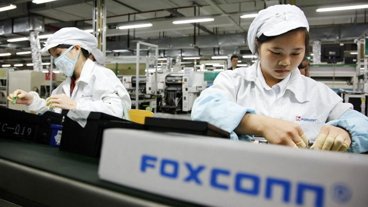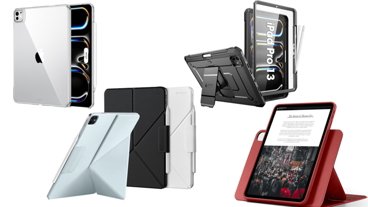RIM PlayBook unlikely to match Apple iPad without larger battery - report
Analyst Shaw Wu with Kaufman Bros. said in a note to investors this week that his industry sources have indicated that RIM continues to experience major issues in developing its forthcoming PlayBook tablet, intended to take on Apple's iPad. He said he would be "very surprised" if the PlayBook manages to match the battery life of the iPad without using a larger battery.
Apple has an advantage over RIM, Wu said, because the iPad maker designs many of its own semiconductors, including the A4 processor that powers the iPad and iPhone 4. In addition, Apple makes its own battery chemistry, and software, allowing for power optimization that competitors like RIM cannot yet compete with.
Another potential problem noted by Wu is Adobe Flash, which he said could be a major factor in the battery life of the PlayBook. He noted that back in November, tests discovered that the new MacBook Air had its battery life significantly reduced when Adobe Flash was installed.
"It should be no surprise to anyone that our checks indicate Adobe is furiously working on reducing Flash's consumption of resources to make it a viable mobile platform vs. HTML5 that both Apple and Google are moving toward," he wrote.
Wu claims his sources indicated the "best" the PlayBook could hope for is to match the six hours of battery life offered by the Samsung Galaxy Tab, an Android-based device that launched last November. And even that would require "significant engineering," he said.
"The reason is that QNX wasn't originally designed for low-powered mobile environments but rather devices plugged into a wall socket (like networking equipment) or a car battery (like automobile control systems and stereos)," he wrote. "At the end of the day, we are glad RIM is working hard on improving battery life as it will be good for both customers and shareholders."
Wu's latest report is a follow-up to one he issued last week, in which he first revealed the alleged battery problems associated with the PlayBook. In that note to investors, he said the PlayBook gets just a "few hours" of uptime, faring worse than both the iPad and the Galaxy Tab.
RIM quickly shot back at Wu's rumors, and said its PlayBook would offer "superior performance with comparable battery life." The device is expected to launch in the first quarter of 2011.
"Any testing or observation of battery life to date by anyone outside of RIM would have been performed using pre-beta units that were built without power management implemented," RIM said in a statement. "RIM is on track with its schedule to optimize the BlackBerry PlayBook's battery life and looks forward to providing customers with a professional grade tablet that offers superior performance with comparable battery life."
 Sam Oliver
Sam Oliver













 Amber Neely
Amber Neely
 Thomas Sibilly
Thomas Sibilly
 AppleInsider Staff
AppleInsider Staff
 William Gallagher
William Gallagher
 Malcolm Owen
Malcolm Owen
 Christine McKee
Christine McKee










55 Comments
You know, AI pays a lot of attention to RIM. It's a dying company. Let it die in peace. Go to the light!
You know, AI pays a lot of attention to RIM. It's a dying company. Let it die in peace. Go to the light!
Dying company? Funny.
You know, AI pays a lot of attention to RIM. It's a dying company. Let it die in peace. Go to the light!
RIM does have a loyal Blackberry following. With that in mind RIM reminds me of Apple in the 90s... resting on its laurels for too long and then doing its damnedest to try and stay current. The only difference to keep in mind is that RIM has always had a much larger following for their product than Apple had for Macs (percentages etc.).
That tells me that they are still a viable company... but they need a SJ to pull them out of the toilet...
(if nothing else RIM's Playbook will most likely be a big incentive for Adobe to get its game on...)
Better performance and comparable battery life eh? Better performance I can see, it is using a better CPU than the current iPad. Better battery life? I doubt it, no one seems to be able to touch Apple in that respect. I suspect both the performance and battery life bars will be trending upward with the iPad 2 anyway. This is the Pre all over again. So much hype, announced well in advance, and the CEO telling the world how great it is against year old hardware.
Apple has an advantage over RIM, Wu said, because the iPad maker designs many of its own semiconductors, including the A4 processor that powers the iPad and iPhone 4. In addition, Apple makes its own battery chemistry, and software, allowing for power optimization that competitors like RIM cannot yet compete with.
Another potential problem noted by Wu is Adobe Flash.
I was gonna point out these two things, but I guess this analyst actually knows what he is talking about. I am actually surprised that Galaxy Tab has such a good battery life on, though I guess Samsung does manufacture a lot of Apple's parts and may know a thing or two about making power efficient chips.